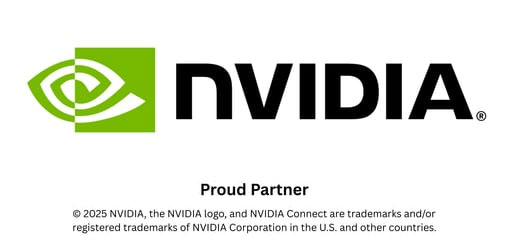“Privacy by design” collapses the moment a State can lawfully compel access. Across Europe, intelligence and security laws grant agencies far-reaching powers to intercept communications, collect bulk data, or mandate cooperation from providers. GDPR does not override these national-security statutes. Below is a concise, sourced map of where powers are broadest, what they cover, and what prudent leaders should do now.
Too long to read, here for the beef
There is no single, authoritative list available ranking every European country by “all-access” powers.
Laws evolve quickly, safeguards are uneven, and practice often emerges only through court cases, leaks, or oversight reports. The bottom line is, “Safe European data deployment” is not black and white; all countries have their own intelligence laws.
Here’s a short pre-cap for the busy board members just looking for the beef and not interested in getting into the nitty-gritty:
- France and Germany are the most dangerous for corporate workloads because their laws explicitly allow compelled cooperation with little judicial buffer.
- Netherlands and Finland sit in the middle tier: bulk interception is legal, but direct corporate access is more constrained and requires special authorisation.
- Luxembourg, Portugal, Ireland and Estonia are considered lower-risk because their intelligence frameworks are narrower, with stricter court involvement and fewer bulk-interception powers.

Countries with the broadest, best-documented powers
France – Loi Renseignement (2015)
Authorises real-time automated analysis “black boxes” at providers, bulk capture of connection data, and far-reaching cooperation duties under national security grounds. The CNCTR provides advisory oversight, but cannot always block executive orders, including in an urgency. Most powers were upheld by the Constitutional Council. EDRi Note; authorisation is not “warrantless”; it is executive plus independent review (TIB).
Germany – BND Act and G-10 Law
The BND (foreign intelligence) may intercept content and traffic data for foreign intelligence, with bulk techniques criticised by civil society. The G-10 Law allows restrictions on communications secrecy for security purposes. Germany’s Constitutional Court curtailed parts of foreign bulk surveillance in 2020, yet significant powers remain. Privacy International
Netherlands – Wiv 2017 and 2024 Temporary Cyber Operations Act
The “Sleepwet” enabled bulk cable interception and hacking, with oversight evolving after heavy criticism. In 2024, the Temporary Cyber Operations Act broadened interception and hacking powers for AIVD/MIVD, explicitly to address state-backed cyber threats. about:intel
Sweden – Signals Intelligence (FRA) regime
Sweden’s FRA-lagen permits bulk interception of cross-border electronic signals for foreign intelligence, subject to a special court and oversight. The ECtHR identified safeguard gaps in 2021, but did not strike down bulk collection per se. HUDOC
Finland – 2019 Civilian & Military Intelligence Acts
Enabled network-traffic intelligence, including automated filtering of cross-border communications, with court authorisation and newly established oversight bodies. Powers cover domestic and foreign targets for national security threats. Valtioneuvosto Note; strategic interception and targeted measures under national-security predicates, not routine corporate “walk-in” access.
Italy – Long retention plus cooperation duties
Italy extended telecoms traffic data retention up to six years, creating a long window for access by authorities. Separate 2024 guidance limits workplace email metadata retention, but this does not curtail national-security access to telecoms traffic data. EDRi Note; telecom retention obligations remain available to authorities for national-security purposes, unaffected by workplace email retention limits.
Spain – CNI framework and Pegasus fallout
The CNI operates under national-security law and judicial authorisation, yet the Pegasus scandal showed practical risks around spyware use, secrecy rules and ex post transparency. EU and human-rights bodies pressed Spain for tighter safeguards. Amnesty International
Poland – Anti-Terrorism Act & surveillance regime
The ECtHR held in 2024 that Poland’s operational control, communications data retention, and secret-surveillance framework violate Article 8 privacy rights, signalling breadth and weak safeguards in practice. HUDOC
Hungary – National Security Services Act & spyware concerns
Amnesty and the European Parliament documented serious oversight deficits after Pegasus revelations, noting surveillance without independent external authorisation. Reforms have been urged to bring practice in line with rights standards. Amnesty International
Greece – Law 5002/2022 and spyware probes
Greece amended surveillance law amid Predator allegations. Critics argue that safeguards are still weak, and prosecutorial decisions have left questions unresolved, underscoring the limits of transparency when state secrecy is invoked. govwatch
Denmark – PET/FE frameworks with bulk-data issues
Official materials confirm the PET and FE legal bases for data collection. Rule-of-law reports highlight controversies over bulk data and the scope of ministerial oversight of foreign intelligence supervision. pet.dk
Belgium – Intelligence oversight shows powers in practice
Belgium’s services operate under statutes with ex-ante and ex-post controls. The standing review committee (Comité I) routinely audits intrusive methods, indicating significant powers exist and require continuous parliamentary oversight. Agencja Bezpieczeństwa Wewnętrznego
Not the EU but relevant: The UK Investigatory Powers Act (IPA) remains one of Europe’s most expansive surveillance frameworks, repeatedly criticised by European courts, and often cited in comparative debates. For cross-border services, it still matters. (Background from ECtHR and civil-society analyses.) Privacy International
Why GDPR does not save you - or your data

GDPR governs private-sector processing. National-security surveillance sits under separate legal bases and derogations. The EU’s Fundamental Rights Agency confirms that Member States maintain distinct regimes for intelligence surveillance, with varying degrees of bulk powers, court control and oversight.
Translated: a vendor can be fully GDPR-compliant, yet still must comply with a lawful national-security order. EUR-Lex
A pragmatic sovereignty checklist for boards
Map jurisdictions, not just regions. Record each provider’s legal domicile, where keys are held, and which national-security laws apply to content, metadata and logs. FRA’s country files are a practical starting point. EUR-Lex
Keep decryption power in your hands. Use client-side or split-key encryption, with hardware-backed key custody under your control. If a lawful demand hits your provider, unreadable ciphertext is your last line of defence.
Minimise what crosses borders. Geo-fence sensitive inference and logging inside the EEA, and avoid “silent” reliance on non-EEA support planes.
Design for auditability. Maintain access logs, lawful-request playbooks, and transparency reporting clauses. If a request is served, you need a clean, provable record.
Segment workloads by risk. Keep safety-critical and identity-linked data in jurisdictions with tighter safeguards, and use low-risk, anonymised or synthetic data where possible.
Plan exits. The EU Data Act makes switching and portability materially easier, and is already nudging providers to drop egress fees in Europe. Use that leverage to re-platform sensitive workloads if legal risk rises. DLA Piper GENIE
Safe deployment ≠ absolute secrecy
“Safe” in Europe must be reframed. It doesn’t mean no state can ever touch it. It means:
Data stays within the EEA (shielded from U.S. FISA 702 / CLOUD Act).
You keep the keys (client-side or split-key encryption, so even if a provider is compelled, they cannot decrypt).
Minimal metadata exposure (segregating logs, anonymising telemetry).
Sovereign cloud vendors from somewhere else than France or Germany, where control and auditability are also European. No U.S. hyperscalers or even U.S. subsidiaries.
Data Act leverage – from 2027, providers cannot charge egress fees, making re-platforming to sovereign infrastructure easier.
Bottom line
Your privacy posture is only as strong as the weakest law that touches your systems. France’s black-box analytics, the Netherlands’ expanded hacking and interception, Sweden’s signals intelligence, Italy’s six-year retention, and the ECtHR’s censure of Poland’s regime all tell the same story. GDPR compliance is necessary, not sufficient. Engineer for sovereignty, control your keys, and never assume “EU-hosted” means immune from national-security access.
Neither Dutch nor Finnish law allows intelligence agencies to simply walk into data centres and pull data “at will.” What they do permit is strategic interception of traffic (bulk collection, filters, hacking powers), authorised by ministers or special courts, with oversight that is weaker than full judicial scrutiny.
At least in Europe, even this still actually means something.
Victor A. Lausas
Chief Executive Officer
Subscribe to North Atlantic’s email newsletter and get your free copy of my eBook,
Artificial Intelligence Made Unlocked. 👉 https://www.northatlantic.fi/contact/
Discover Europe’s best free AI education platform, NORAI Connect, start learning AI or level up your skills with free AI courses and future-proof your AI knowledge. 👉 https://www.norai.fi/






